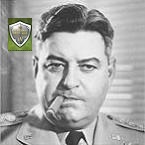ORIGINAL: Curtis Lemay
ORIGINAL: loki100
I'm sorry but that is too simplistic. Of course the various militaries studied every war and tried to interpret what it meant - and had no illusions as to what the rifle (never mind the machine gun) was going to do on the battlefield.
Serious suggestion, read Gat's second book in his History of Military Thought.
They knew where technology was taking warfare and then came up with various fantasies (such as the French primacy of morale) to set it to one side.
It's not simplistic to blame a war on the side that went first. That's just stating the obvious.
And how can you say that "They knew where technology was taking warfare" and follow that up with "and then came up with various fantasies". Clearly, they didn't know where technology was taking warfare well enough. This is kind of like claiming that we should have seen 9-11 coming. But that was only obvious after the fact.
For sure, each of the sides were anticipating a limited war - a few weeks. Not years of mass slaughter. That's where the absence of any BIG wars since 1815 comes in.
...
Not sure why you are persisting with this. Every major military obsessively studied every major conflict for a variety of reasons - mobilisation, technology, in-battle tactics etc. I realise that things like the Russo-Japanese war are now seen as a fringe event but at the time it was obsessively studied. And the implications of the firepower of not particularly well trained troops using not particulary good entrenchments were terrifying - and well understood. As above, read Gat or someone similar - I found it incredibly educational
Now the French knew as well as every body else where firepower was going to take warfare. So they had two choices:
a) realism, they lacked the population of Germany, due to the army-state rivalries in the Third Republic they lacked for both a large enough professional army and a well organised reserve. So they had to plan to be on the defensive and fight that way (which after the opening debacle they did, and did pretty well).
but
b) fantasy, the only reason France was going to go to war with Germany was over Alsace-Lorraine, they had few colonial flashpoints unlike the British. That implied they had to attack. They knew (a) that attack would be seriously costly so came up with the fantasy doctrine that high morale/will/etc would overcome rifle fire and their attacks would win. Hence Plan 17 and the rest.
There's a field in the psychology of decision making around this. Creating a narrative that gives the outcome you want and putting unwelcome information to one side. Its exactly what the Germans did in planning for Barbarossa - also happens to be the core of my PhD.
Now some politicians may have had illusions, but most knew full well what they were committing to. Hence all the reports of deep unease. Lets face it if you really wanted to stir up support for your war do you promise a glorious and quick end, or 4 years of slaughter - the latter may have been less appealing?








